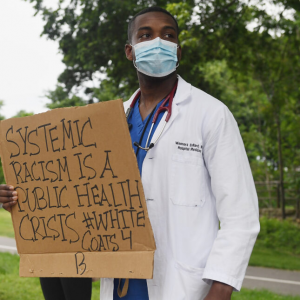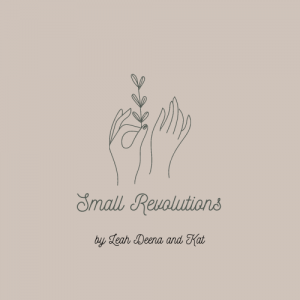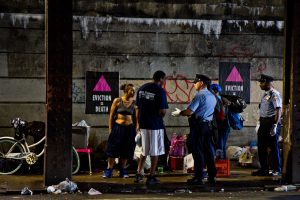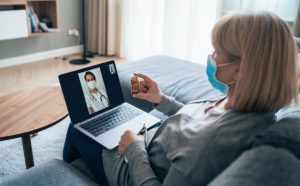Harnessing the power of multiple voices and perspectives, students created podcasts to showcase how the concepts of GHP 350 unfold in the everyday lives of doctors, advocates, and patients. The podcasts in this collection feature interviews with healthcare providers, community advocates, and patients struggling to access medical services. The assembled conversations highlight perspectives often ignored in mainstream discussions of healthcare, inviting renewed attention to those sites where institutions fail and structures of inequality overtake the urgent needs of patients. Crucially, many of these podcasts also offer inspiration for action, revolutions big and small that may guide shared struggles for better health.
We explore the history of risk healthcare workers of color have faced using a biosocial approach to better understand the psychologies of care providers and their lived inequities. By discussing the largely ignored issue of workplace discrimination and presenting Anne’s story, we invite future global health professionals to go beyond calls for diversity to address this understudied topic. As we work toward a more equitable future, we hope all listeners will be mindful of the hidden healthcare voices that are often overlooked.
explore the history of risk healthcare workers of color have faced using a biosocial approach to better understand the psychologies of care providers and their lived inequities. By discussing the largely ignored issue of workplace discrimination and presenting Anne’s story, we invite future global health professionals to go beyond calls for diversity to address this understudied topic. As we work toward a more equitable future, we hope all listeners will be mindful of the hidden healthcare voices that are often overlooked.
Structural Syndemics: Opioid Crisis in Philadelphia
Our project aims to combine an ethnographic and epidemiological approach to examine the historical, structural, and social factors that contribute to the ongoing Opioid Crisis in Philadelphia. In this podcast, we ask: How did the opioid crisis begin and develop in the City of Brotherly Love? What structural factors have contributed to their experiences with opioids and seeking related health resources? Clayton Ruley from Prevention Point Philadelphia and Dr. Bon Ku from the Thomas Jefferson University Hospital speak on their experiences working directly with these health topics in Philadelphia.
 Our aim is to improve patients’ relationship with health by reframing what can be done by patients for patients as small revolutions. We use the term small revolution to say that when patients become self-aware of the power and importance they have in their own health and their interactions with the healthcare system, they become involved in building a better healthcare system. Join us in exploring this idea through discussions about Patient Autonomy, Cultural Competency, Strength in Numbers, and finally a small revolution example; Sarah Latta, a ballet dancer from Palmer, Alaska.
Our aim is to improve patients’ relationship with health by reframing what can be done by patients for patients as small revolutions. We use the term small revolution to say that when patients become self-aware of the power and importance they have in their own health and their interactions with the healthcare system, they become involved in building a better healthcare system. Join us in exploring this idea through discussions about Patient Autonomy, Cultural Competency, Strength in Numbers, and finally a small revolution example; Sarah Latta, a ballet dancer from Palmer, Alaska.
Expanding Access to Essential Care
We explore both the benefits and limits of telehealth through Project Echo and the Dartmouth-Hitchcock Medical Center in New Hampshire, one of the state’s biggest hospitals. It is important to note that although we focus on these developments in New Hampshire, the analysis can be applied to healthcare systems across the globe. Remote care can be seen as a form of “telehealth,” and data reflecting the use of such care during COVID-19 will allow providers to implement the technology in the most equitable way. “Health at home” will continue post-pandemic and has great potential to improve health outcomes of rural patients, if implemented correctly.

